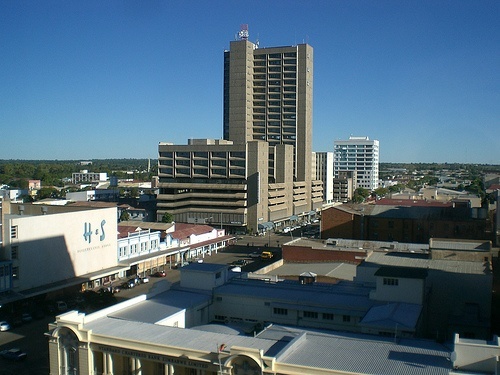
BULAWAYO City Council (BCC) seems to have given up on removing illegal street vendors that have virtually camped in the city, turning the once clean central business district (CBD) into a dumpsite.
BY MUSA DUBE
An increasing number of people have turned to vending in the country’s second largest city in order to make ends meet as the economy continues to meltdown, with companies scaling down operations or shutting down.
The vendors sell anything from sweets, fruits, vegetables, cellphones and other accessories, in violation of the city’s by-laws.
For a long time, there have been running battles between vendors and municipal police who were confiscating the vendors’ wares. But of late such battles have died down as the council appears to have taken a back seat.
Bulawayo’s Lobengula and Herbert Chitepo streets — the hub of illegal vending — now resemble a scene from down-town Lagos in Nigeria.
The situation was chaotic when this writer visited the area as people, mostly women, were haphazardly seated in the scotching sun selling their wares.
Bulawayo City Mayor, Martin Moyo said they understood the plight of residents, adding that they were on streets due to desperation.
- Chamisa under fire over US$120K donation
- Mavhunga puts DeMbare into Chibuku quarterfinals
- Pension funds bet on Cabora Bassa oilfields
- Councils defy govt fire tender directive
Keep Reading
He said it was wrong to chase away vendors as they were trying to earn an honest living.
“We are cognisant of the fact that about 80% of our people are on the streets and unemployed. They go to the market and get some few vegetables and sell for survival,” said Moyo.
He added: “As council, our stance is they should not be harassed and their wares should not be confiscated but we still need to balance by having some resemblance of order.
“We are not saying let’s have vendors everywhere but let’s have the vendors organised and allow them to operate at designated places.”
Bulawayo Progressive Residents Association programmes and advocacy manager, Emmanuel Ndlovu challenged the BCC to devise pro-poor policies that would address the challenges faced by the residents.
He said the massive de-industrialisation in the city had plunged many people into poverty and were now employing any means to earn a living.
“About 55% of the local population is surviving on vending and, on a daily basis, workers are being forced into market vending due to de-industrialisation,” said Ndlovu. “The city council should come up with pro-poor policies that address these challenges faced by the jobless people.”
It has also been reported that about 25 000 workers in Bulawayo were retrenched in the past few years after the closure of about 100 companies.
The worst affected sector was the clothing sector which had the highest number of retrenchments.
Bulawayo city used to be the country’s industrial hub.










